
Domoni: The Hidden Gem of Comoros
Domoni, nestled on the island of Anjouan in the Comoros archipelago, is a city that offers an enchanting blend of history, culture, and natural beauty. Known for its rich Swahili-Arabic heritage, Domoni stands as a testament to the diverse influences that have shaped this region over centuries. The city is dotted with historical buildings, some dating back to the 15th century, offering a glimpse into its storied past. Wander through the narrow streets of Domoni, where you'll find vibrant markets brimming with local produce, handicrafts, and aromatic spices. The local culture is deeply rooted in tradition, with friendly residents who are always eager to share their stories and customs. Domoni's coastal location provides stunning views of the Indian Ocean, and its pristine beaches are perfect for relaxation or a refreshing swim. Beyond the city, the lush landscapes of Anjouan beckon nature lovers. A hike through the island's mountainous terrain reveals cascading waterfalls, verdant valleys, and exotic flora and fauna. Whether you're exploring the historical sites, soaking in the sun on a beach, or trekking through the wilderness, Domoni offers a unique and unforgettable experience for every traveler.
Local tips in Domoni
- Visit the historic mosques and palaces to appreciate Domoni's rich architectural heritage.
- Explore the local markets early in the morning for the freshest produce and best bargains.
- Hire a local guide to take you on a hike to the island's hidden waterfalls and scenic spots.
- Learn a few basic phrases in French or Comorian to better connect with the locals.
- Respect local customs and dress modestly, especially when visiting religious sites.
Domoni: The Hidden Gem of Comoros
Domoni, nestled on the island of Anjouan in the Comoros archipelago, is a city that offers an enchanting blend of history, culture, and natural beauty. Known for its rich Swahili-Arabic heritage, Domoni stands as a testament to the diverse influences that have shaped this region over centuries. The city is dotted with historical buildings, some dating back to the 15th century, offering a glimpse into its storied past. Wander through the narrow streets of Domoni, where you'll find vibrant markets brimming with local produce, handicrafts, and aromatic spices. The local culture is deeply rooted in tradition, with friendly residents who are always eager to share their stories and customs. Domoni's coastal location provides stunning views of the Indian Ocean, and its pristine beaches are perfect for relaxation or a refreshing swim. Beyond the city, the lush landscapes of Anjouan beckon nature lovers. A hike through the island's mountainous terrain reveals cascading waterfalls, verdant valleys, and exotic flora and fauna. Whether you're exploring the historical sites, soaking in the sun on a beach, or trekking through the wilderness, Domoni offers a unique and unforgettable experience for every traveler.
When is the best time to go to Domoni?
Iconic landmarks you can’t miss
Bouni Beach
Discover the pristine beauty of Bouni Beach in Comoros, where sun, sand, and sea create an unforgettable tropical escape.
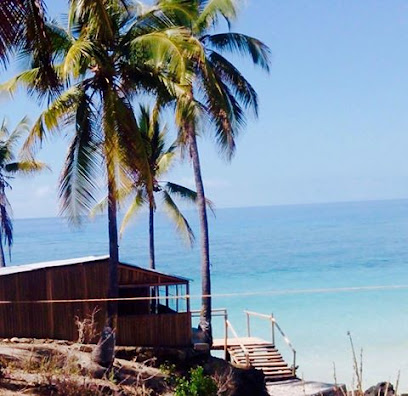
Dos du Dragon
Discover the breathtaking views and cultural richness of Dos du Dragon, a must-visit tourist attraction in Mitsamiouli, Comoros Islands.
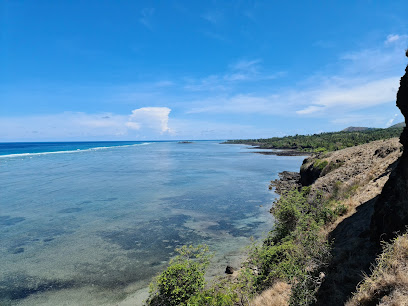
Le Trou Du Prophète
Experience the serene beauty and vibrant culture at Le Trou Du Prophète, a hidden gem in Mitsamiouli, Comoros, perfect for recreation and relaxation.
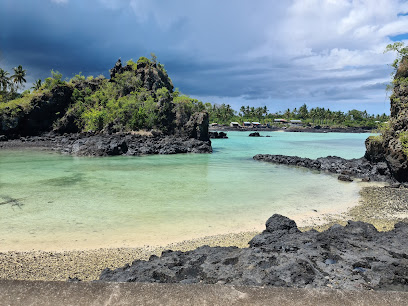
Plage de Moya
Experience the breathtaking beauty of Plage de Moya, a hidden coastal paradise in Comoros perfect for relaxation and adventure.
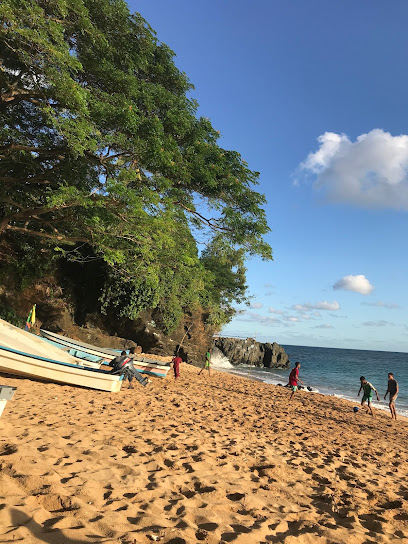
Dziani Boundouni
Discover the tranquil beauty of Dziani Boundouni, a stunning lake in Comoros surrounded by lush landscapes and rich cultural heritage.
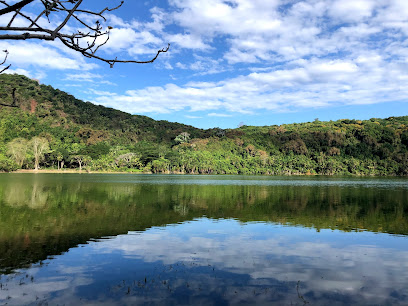
Le Gala - Mohéli
Discover the natural beauty and vibrant culture of Mohéli at Le Gala, a must-visit tourist attraction in the Comoros Islands.

Radio Domoni Inter
Discover the vibrant sounds and stories of Comoros at Radio Domoni Inter, your gateway to local culture and community insights.
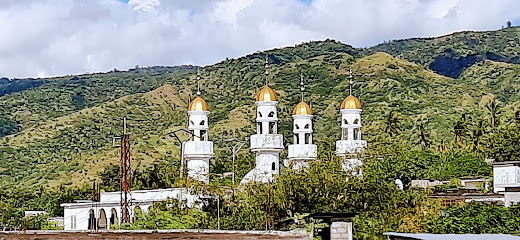
Mausolée du Feu Président AAA, Domoni
Discover the rich heritage of the Comoros at the Mausolée du Feu Président AAA, a stunning mosque and historical landmark in Domoni.
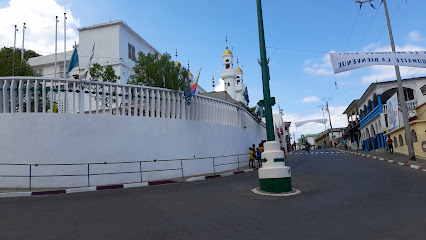
The Citadel of Mutsamudu
Discover the historic Citadel of Mutsamudu, a stunning fortress offering breathtaking views and a deep dive into Comoros' rich cultural heritage.
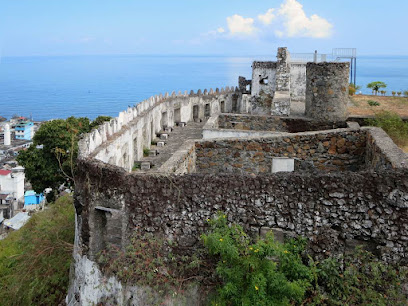
PLACE ULANGA
Explore the breathtaking landscapes and rich biodiversity of Place Ulanga, a serene escape in the heart of Comoros for every nature lover.
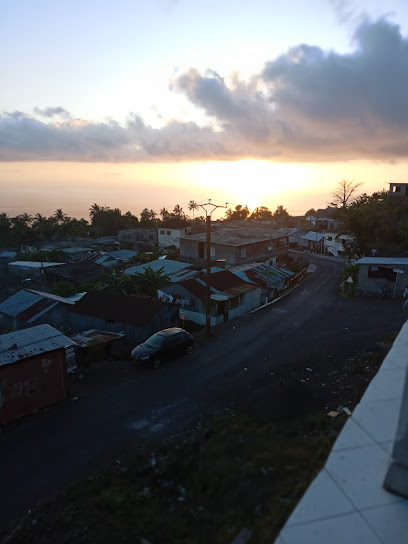
Ancien port de Domoni
Explore the rich cultural heritage of Comoros at Ancien Port de Domoni, a historical landmark offering stunning views and a glimpse into the island's maritime past.

Mangrove de Domoimboini
Explore the beauty of Mangrove de Domoimboini, a serene park in Comoros, showcasing rich biodiversity and tranquil landscapes perfect for nature lovers.

Essential places to dine
Restaurant La Marine
Discover authentic Mayotte cuisine at Restaurant La Marine – where every meal is a celebration of local flavors and hospitality.
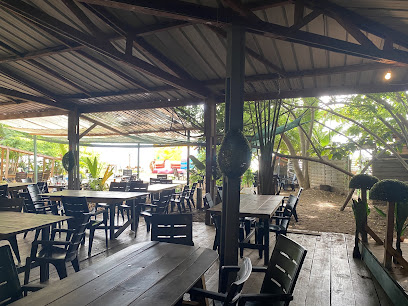
Nasso na Bisso
Discover authentic Mayotte cuisine at Nasso na Bisso – where fresh ingredients meet warm hospitality.
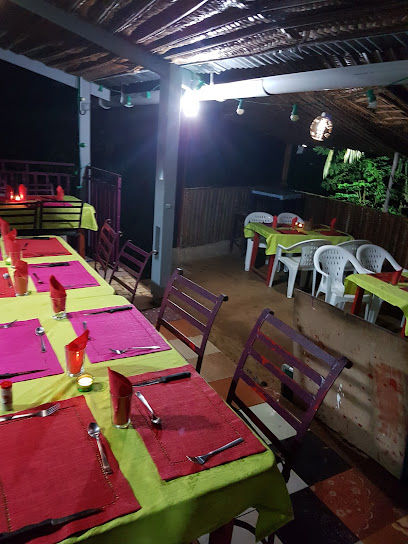
Restaurant les Artistes
Experience authentic Mayotte cuisine at Restaurant les Artistes in Combani – a culinary treasure with local flavors and warm hospitality.
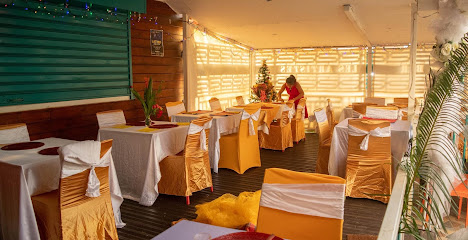
Restaurant-Bellevue
Experience authentic Mayotte flavors at Restaurant-Bellevue - where every dish tells a story.
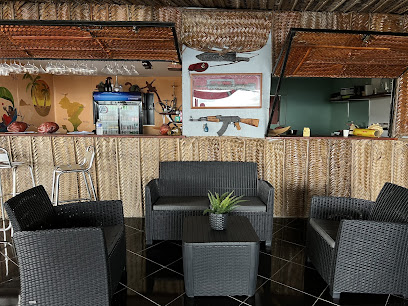
ZOUZOU DELICE
Experience the authentic flavors of Mayotte at Zouzou Delice - where local ingredients meet culinary artistry.
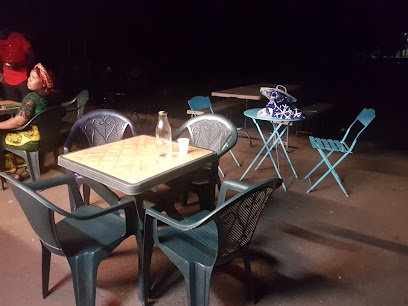
La boissonerie
Experience authentic Mayotte cuisine at La Boissonerie—where local flavors meet warm hospitality in a charming setting.
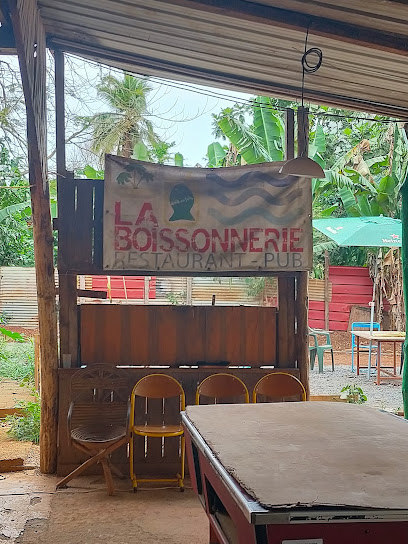
La Forge
Experience authentic local cuisine at La Forge in Mroualé, where every meal tells a story of Mayotte's rich culinary traditions.
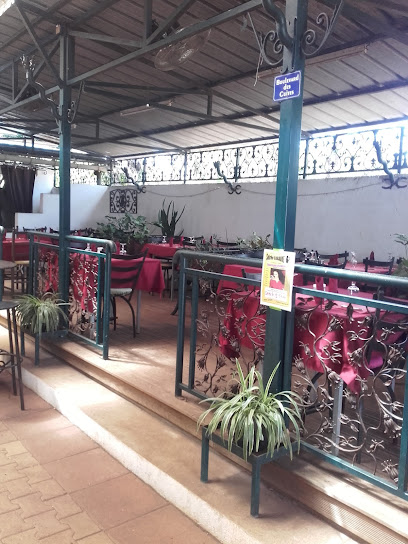
Brochettes moudjo
Experience authentic Mayotte cuisine at Brochettes Moudjo – where every skewer tells a story.
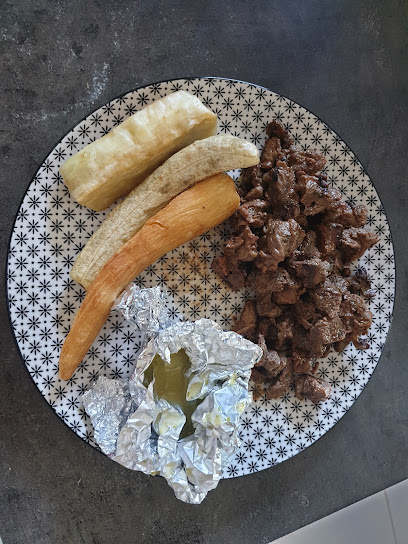
La Tête Raide
Experience authentic local cuisine with stunning coastal views at La Tête Raide in Mliha, Mayotte.
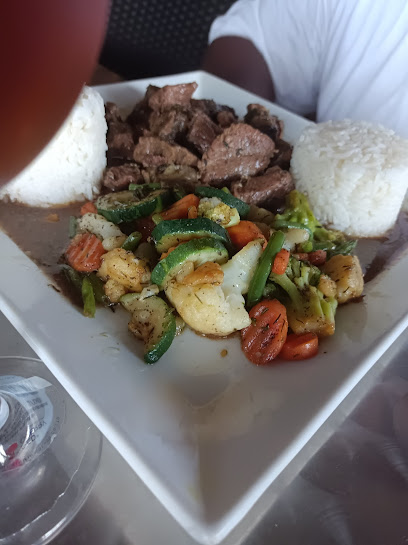
Chez D’jam
Experience authentic Mayotte cuisine at Chez D’jam—where local flavors meet island hospitality in Bandraboua.
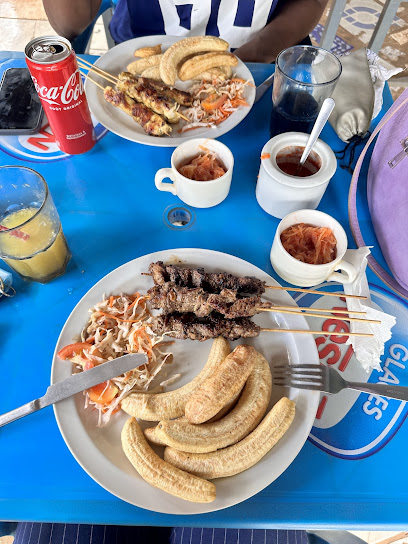
Naoumi Pizza
Discover Naoumi Pizza in Mutsamudu - where delicious pizzas meet vibrant culture for an unforgettable dining experience.
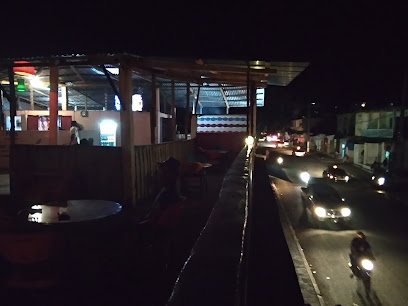
chez aladin
Discover authentic Comorian cuisine at Chez Aladin in Mirontsi - where every meal is a flavorful journey into local culture.
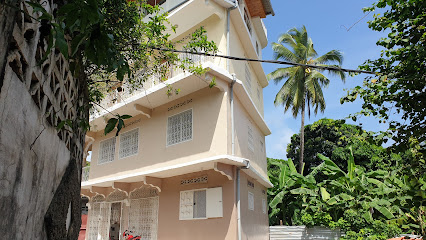
Café Restaurant-Snack Bar
Experience authentic Mayotte cuisine at Café Restaurant-Snack Bar in Chiconi, offering fresh local dishes and a warm atmosphere.
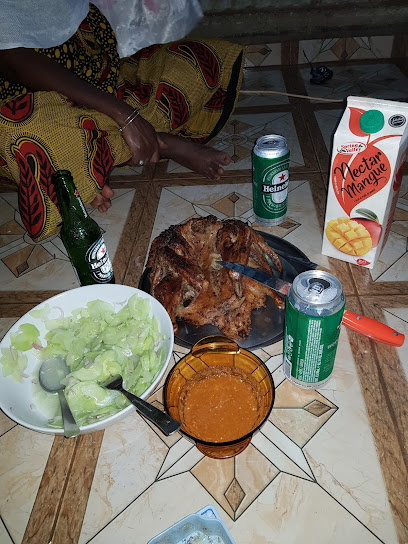
RESTAURANT LE RAFLA - MTSANGAMOUJI
Discover exquisite local cuisine at Restaurant Le Rafla in M'Tsangamouji—where every meal is paired with breathtaking ocean views.
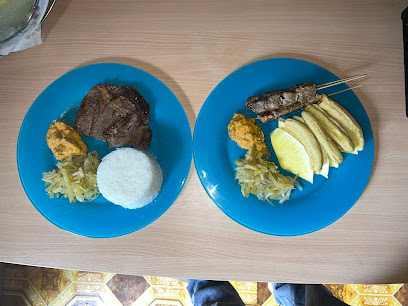
Al Quittoir
Discover exquisite French cuisine at Al Quittoir in Mutsamudu, Comoros – where culinary tradition meets local flavor.
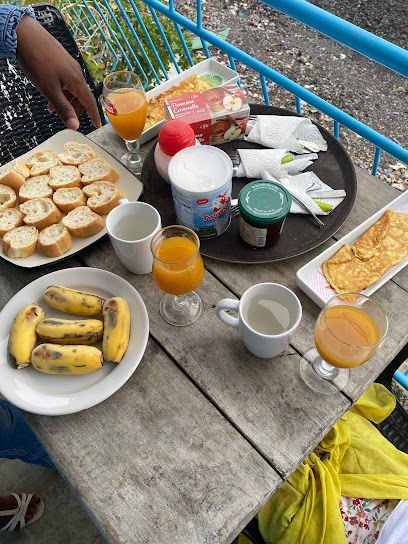
Markets, malls and hidden boutiques
Magasin Naantil-lahi
Explore local flavors and vibrant culture at Magasin Naantil-lahi, a must-visit warehouse store in Mutsamudu, Comoros.

Centre Commercial de Bazimini
Explore the Centre Commercial de Bazimini: a vibrant shopping mall in Comoros blending local culture, diverse shops, and delightful dining experiences.
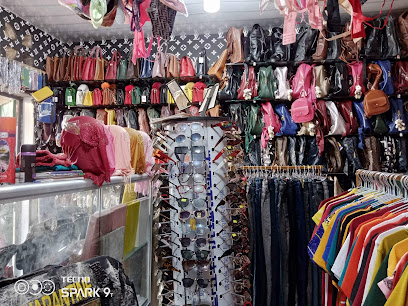
Place Chindoni
Explore Place Chindoni in Koimbani: A vibrant shopping mall offering unique local crafts, delicious food, and a lively atmosphere for tourists.
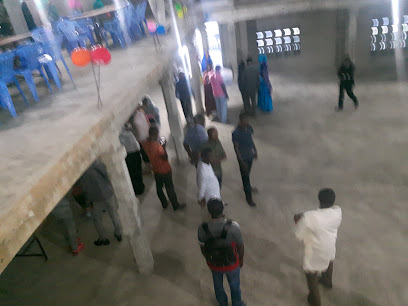
Wiz fashion
Explore the vibrant essence of Comorian fashion at Wiz Fashion in Ouani, where local craftsmanship meets modern style.

Canal+ Domoni
Explore a diverse selection of electronics at Canal+ Domoni, where modern technology meets Comorian hospitality.
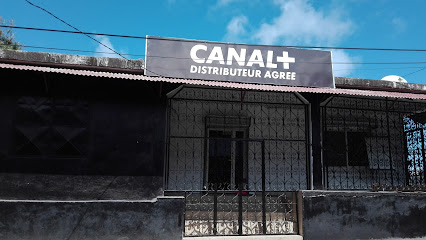
Resto-Shop
Experience the vibrant flavors of Comorian cuisine at Resto-Shop in Domoni, your perfect stop for delicious meals and local hospitality.
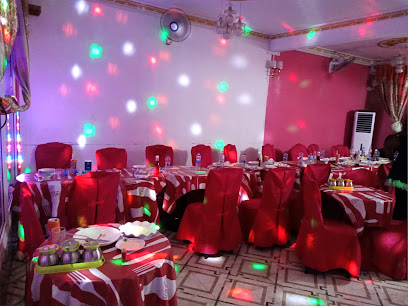
Douka bé
Discover the best of local and international products at Douka bé, your essential supermarket in Domoni, Comoros for a delightful shopping experience.
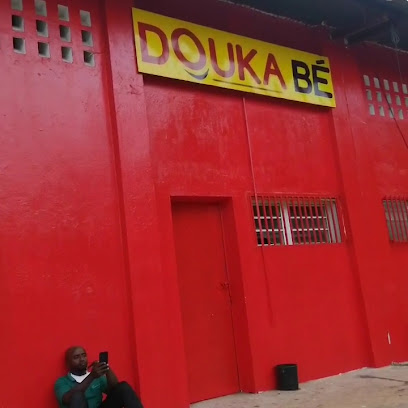
Moyalux
Explore Moyalux in Moya, Comoros - your one-stop hardware store for all home improvement and construction needs.
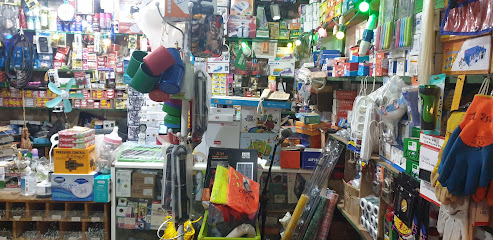
Rehema Mouhibou
Experience the delightful flavors of Rehema Mouhibou, a must-visit ice cream shop in Domoni, Comoros, offering a taste of tropical paradise.
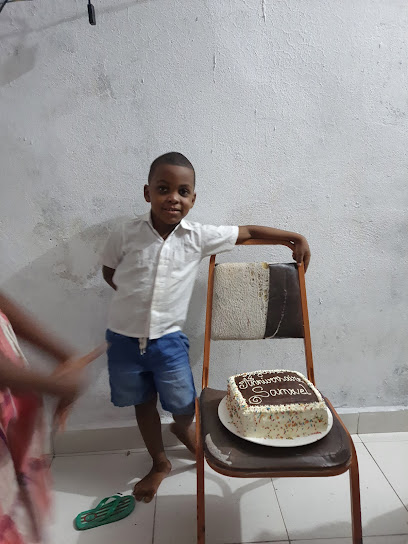
Magasin ANAA, Supermarché
Discover the local essence at Magasin ANAA, Supermarché in Domoni, Comoros, your gateway to authentic culinary experiences.
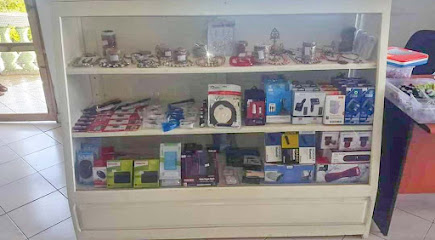
City Centre Boutique
Discover unique shopping experiences and local culture at the City Centre Boutique in Mrémani, the heart of Comoros.

Magasin AminaHoumadi
Discover the vibrant local culture and unique artisan crafts at Magasin AminaHoumadi in Mutsamudu, Comoros.
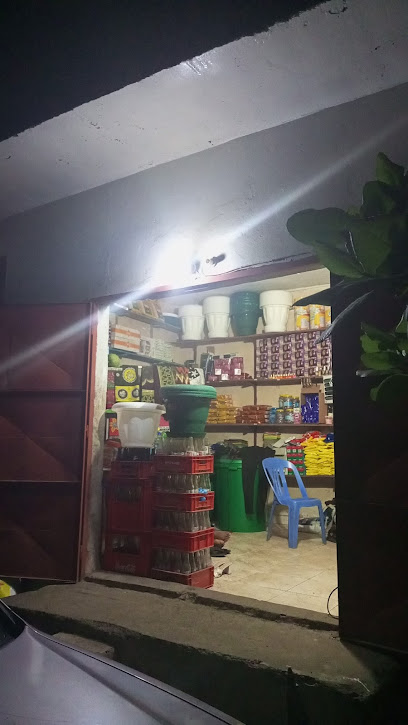
Oujoumbé
Experience the vibrant local fashion at Oujoumbé in Mutsamudu, where unique styles meet the rich heritage of the Comoros islands.
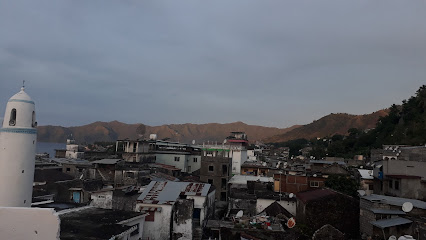
Ma boutique en ligne
Ma Boutique en Ligne: Your trusted source for electric generators in Mutsamudu, Comoros, ensuring reliable power solutions for home and business.
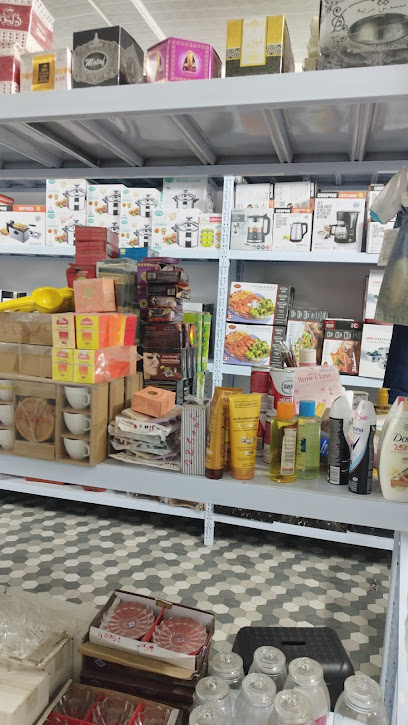
Hôtel Zindroni
Visit Hôtel Zindroni in Domoni for a cozy coffee experience infused with local flavors and friendly service.
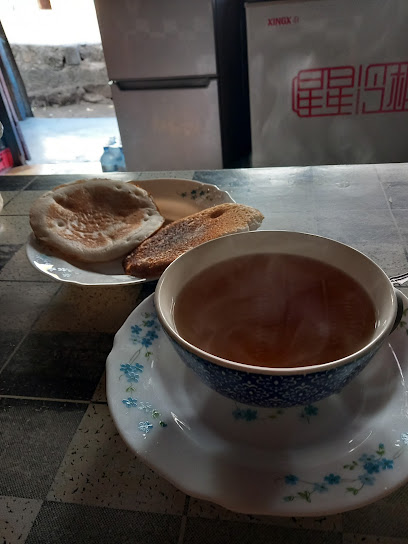
Essential bars & hidden hideouts
Le Sympa
Experience the vibrant flavors and stunning views at Le Sympa, a bar and restaurant in Pamanzi, Mayotte, where every meal is a celebration of local culture.
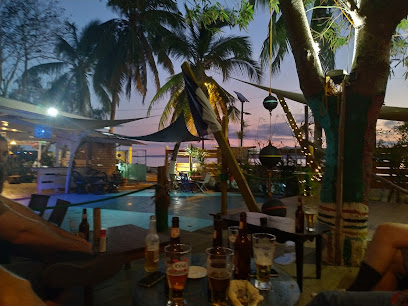
Restaurant & Grill Le Coraya
Experience the authentic flavors of Comoros at Restaurant & Grill Le Coraya, where local cuisine meets vibrant atmosphere.
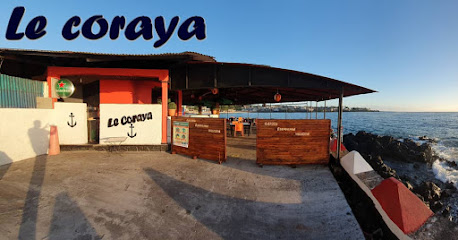
New Select Restaurant
Experience the rich flavors of Comoros at New Select Restaurant in Moroni, where authentic cuisine meets vibrant local culture.
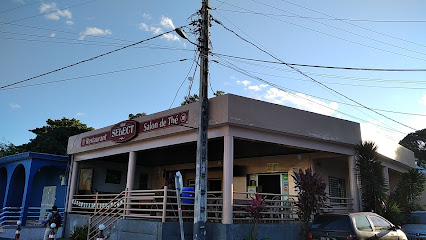
CHEZ NINI BAR GRILL
Discover the authentic taste of Comoros at CHEZ NINI BAR GRILL, a culinary paradise in Mitsamiouli offering exquisite local dishes and a warm ambiance.
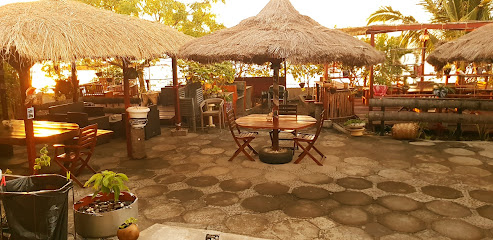
Comptoir des Iles-Al Quitoir
Discover the charm and comfort of Comptoir des Iles-Al Quitoir, your gateway to the stunning beauty of the Comoros Islands.
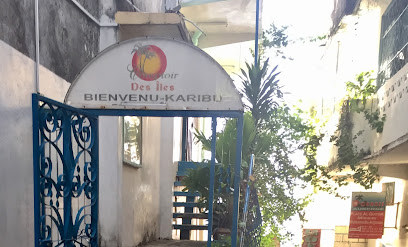
Tchak bé
Experience the vibrant nightlife at Tchak bé, a lively bar in Boueni, Mayotte, where culture and camaraderie blend seamlessly.
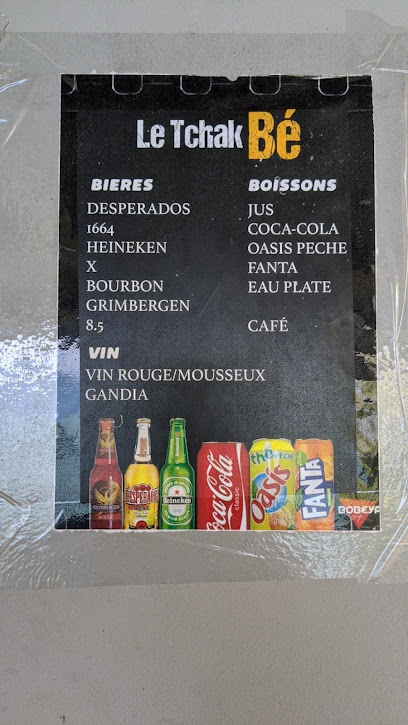
Douka bé
Experience the vibrant heart of Domoni at Douka bé, a bustling supermarket offering fresh local produce and a taste of Comorian culture.
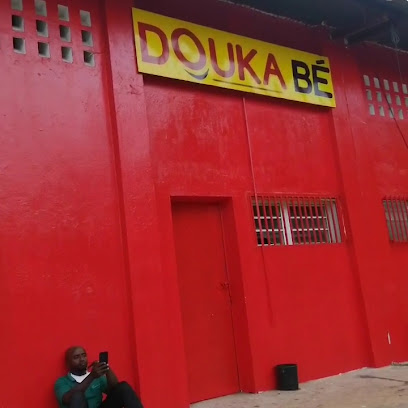
Arc-en-ciel
Experience the vibrant charm of Arc-en-ciel, the ultimate bar in Ouani, Comoros, where local flavors and lively atmosphere unite.

Les touristes
Experience the vibrant atmosphere and refreshing drinks at Les Touristes, the perfect bar for tourists in Ouani, Comoros.

Nachir Djamou-Houcoume
Discover the essence of Comorian culture at Nachir Djamou-Houcoume, a cozy hookah bar in Mutsamudu perfect for relaxation and socializing.
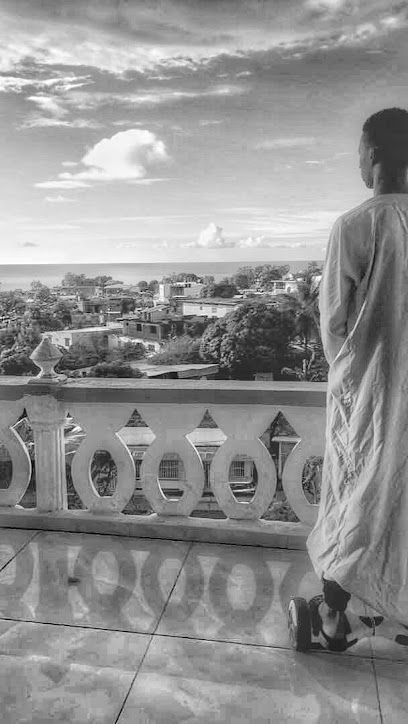
Bar du N'Gouja
Discover Bar du N'Gouja, a hidden gem in Kani-Keli, Mayotte, where tropical drinks and local culture blend seamlessly for an unforgettable experience.
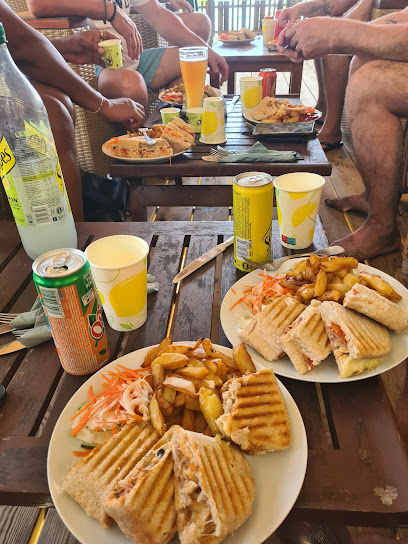
Restaurant Benzalissa
Discover the lively ambiance and local flavors at Restaurant Benzalissa, a must-visit bar in Mbambao Mtsanga, Comoros.
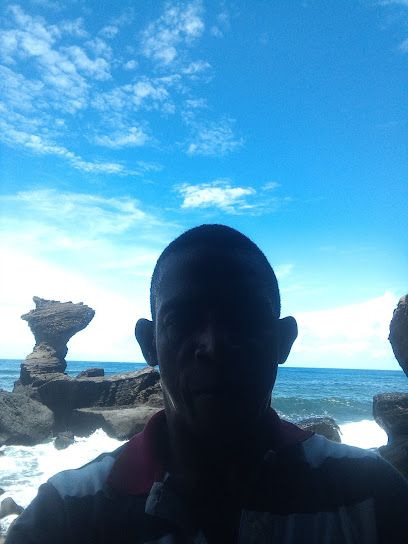
Déjeuner pas cher
Discover the heart of Mayotte’s gastronomy at Déjeuner Pas Cher, a charming bar offering affordable local delicacies in Bandraboua.
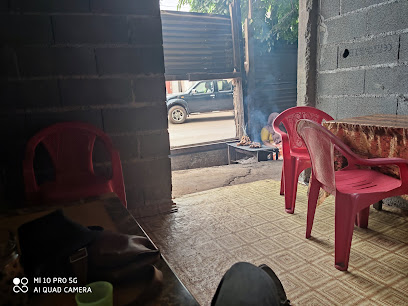
Chiconi
Discover the vibrant atmosphere of Chiconi, a charming bar in Mayotte where locals and tourists come together to enjoy delightful drinks and lively conversations.
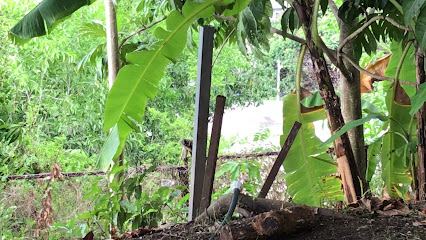
Local Phrases
-
- HelloSalam
[sa-lam] - GoodbyeKwaheri
[kwa-he-ri] - YesEewa
[ee-wa] - NoLaa
[la] - Please/You're welcomeTafadhali
[ta-fa-dha-li] - Thank youShukrani
[shu-kra-ni] - Excuse me/SorrySamahani
[sa-ma-ha-ni] - How are you?Habari yako?
[ha-ba-ri ya-ko] - Fine. And you?Nzuri. Na wewe?
[nzu-ri. na we-we] - Do you speak English?Unazungumza Kiingereza?
[u-na-zu-ngum-za ki-in-ge-re-za] - I don't understandSielewi
[si-e-le-wi]
- HelloSalam
-
- I'd like to see the menu, pleaseNingependa kuona menyu, tafadhali
[ni-nge-pen-da ku-o-na me-nyu, ta-fa-dha-li] - I don't eat meatSili nyama
[si-li nya-ma] - Cheers!Mambo!
[mam-bo] - I would like to pay, pleaseNingependa kulipa, tafadhali
[ni-nge-pen-da ku-li-pa, ta-fa-dha-li]
- I'd like to see the menu, pleaseNingependa kuona menyu, tafadhali
-
- Help!Usaidizi!
[u-sai-di-zi] - Go away!Nenda zako!
[nen-da za-ko] - Call the Police!Piga simu polisi!
[pi-ga si-mu po-li-si] - Call a doctor!Piga simu daktari!
[pi-ga si-mu dak-ta-ri] - I'm lostNimepotea
[ni-me-po-te-a] - I'm illNinaumwa
[ni-na-um-wa]
- Help!Usaidizi!
-
- I'd like to buy...Ningependa kununua...
[ni-nge-pen-da ku-nu-nua] - I'm just lookingNatazama tu
[na-ta-za-ma tu] - How much is it?Bei ni kiasi gani?
[bei ni kia-si ga-ni] - That's too expensiveHiyo ni ghali sana
[hi-yo ni gha-li sa-na] - Can you lower the price?Unaweza kupunguza bei?
[u-na-we-za ku-pun-gu-za bei]
- I'd like to buy...Ningependa kununua...
-
- What time is it?Saa ngapi?
[sa-a nga-pi] - It's one o'clockNi saa moja
[ni sa-a mo-ja] - Half past (10)Saa tano na nusu
[sa-a ta-no na nu-su] - MorningAsubuhi
[a-su-bu-hi] - AfternoonMchana
[m-cha-na] - EveningJioni
[jo-ni] - YesterdayJana
[ja-na] - TodayLeo
[le-o] - TomorrowKesho
[ke-sho] - 1Moja
[mo-ja] - 2Mbili
[m-bi-li] - 3Tatu
[ta-tu] - 4Nne
[n-ne] - 5Tano
[ta-no] - 6Sita
[si-ta] - 7Saba
[sa-ba] - 8Nane
[na-ne] - 9Tisa
[ti-sa] - 10Kumi
[ku-mi]
- What time is it?Saa ngapi?
-
- Where's a/the...?Iko wapi...?
[i-ko wa-pi] - What's the address?Anwani ni ipi?
[an-wa-ni ni i-pi] - Can you show me (on the map)?Unaweza kunionyesha (kwenye ramani)?
[u-na-we-za ku-nio-nye-sha (kwe-ne ra-ma-ni)] - When's the next (bus)?Basi lijalo ni saa ngapi?
[ba-si li-ja-lo ni sa-a nga-pi] - A ticket (to ....)Tiketi (kwenda ...)
[ti-ke-ti (kwe-nda)]
- Where's a/the...?Iko wapi...?
History of Domoni
-
Domoni, one of the oldest towns in the Comoros, traces its roots back to early Swahili settlers. These traders and seafarers from the East African coast brought with them their culture, language, and Islamic religion, which deeply influenced the local way of life. The town's architecture, featuring coral stone houses and intricately carved wooden doors, reflects this Swahili heritage.
-
In the 15th century, Domoni became a significant center of power as it emerged as the capital of one of the Comoros' sultanates. The sultanate period saw the construction of many important buildings and the establishment of a robust trade network with the Arab world, Persia, India, and the Swahili coast. The sultans played crucial roles in the political and economic spheres of the region.
-
During the 16th and 17th centuries, Domoni experienced interactions with both the Portuguese and the Omanis. The Portuguese, seeking to control the Indian Ocean trade, made several incursions into the Comoros, including Domoni. Later, the Omanis, who were expanding their influence from Zanzibar, also made their presence felt in the region, contributing to the cultural and religious landscape of the town.
-
In the late 19th century, the Comoros, including Domoni, came under French colonial rule. This period brought significant changes to the town's administrative and social structures. The French introduced new educational systems, infrastructure developments, and administrative reforms. Domoni evolved as a crucial administrative center under French governance, although traditional structures continued to play an important role in everyday life.
-
Comoros gained independence from France in 1975, marking a new chapter in Domoni's history. The town has since navigated various political changes and economic challenges. Despite these, Domoni has continued to preserve its rich cultural heritage, with traditional music, dance, and Islamic practices playing a central role in community life.
-
Domoni is known for its vibrant cultural festivals, which attract visitors from across the Comoros and beyond. These festivals often feature traditional music, dance, and religious ceremonies, providing a glimpse into the town's enduring cultural practices. The Maulidi festival, celebrating the birth of the Prophet Muhammad, is one of the most significant events, showcasing the town's deep Islamic roots and communal spirit.
-
The architectural landscape of Domoni is a testament to its rich historical tapestry. The old town features narrow winding streets, traditional Swahili houses, and several mosques with unique designs, including the iconic Domoni Mosque. These structures not only highlight the town's historical significance but also its resilience in preserving its architectural heritage amidst modern developments.
Domoni Essentials
-
Domoni is located on the island of Anjouan in the Comoros. The nearest international airport is Ouani Airport (AJN) in Mutsamudu, about 25 kilometers away from Domoni. From the airport, you can take a taxi or a shared minibus to Domoni. The journey typically takes around 45 minutes. Alternatively, you can arrive by ferry from the other islands of the Comoros, including Grande Comore and Mohéli. Ferries operate regularly but schedules can be irregular, so it is advisable to check in advance.
-
Domoni is a small town, and many of its attractions are within walking distance. For longer trips, local taxis are available and relatively inexpensive. Shared minibuses (known locally as 'bush taxis') also operate within the town and to nearby areas. Renting a car is an option, but the condition of the roads and the availability of rental services can be limited. Bicycles can be rented for a more eco-friendly way to explore the town.
-
The official currency in the Comoros is the Comorian Franc (KMF). Credit cards are not widely accepted, so it is advisable to carry cash. There are a few ATMs in Domoni, but they may not always be reliable, so withdrawing sufficient cash in larger towns like Mutsamudu is recommended. Ensure you have small denominations as larger notes can be difficult to change.
-
Domoni is generally a safe destination for tourists. However, like any place, it is advisable to take standard precautions. Avoid walking alone at night in unfamiliar areas and keep an eye on your belongings in crowded places, such as markets. There are no specific high-crime areas targeting tourists, but staying vigilant is always wise.
-
In case of an emergency, dial 17 for police assistance and 18 for medical emergencies. Domoni has a local police station and a medical center that can handle minor health issues. For more serious medical emergencies, you may need to be transported to the main hospital in Mutsamudu. It is recommended to have travel insurance that covers medical emergencies, including evacuation.
-
Fashion: Do dress modestly, especially when visiting religious sites. Avoid wearing revealing clothing. Religion: Do respect local customs and traditions. Always remove your shoes and cover your head when entering mosques. Public Transport: Do be respectful and greet the driver and passengers when boarding. Don't eat or drink on public transport. Greetings: Do greet people with a handshake or a slight bow of the head. A friendly smile is always appreciated. Eating & Drinking: Do try local delicacies and accept food offerings graciously. Don't refuse hospitality, as it is considered impolite.
-
To experience Domoni like a local, visit the local markets where you can buy fresh produce and traditional Comorian goods. Engage with locals, as they are often friendly and willing to share stories about the town's history and culture. Don't miss visiting the historic medina of Domoni with its ancient buildings and narrow streets. For a unique experience, attend a local wedding or festival to witness traditional Comorian music and dance.
Nearby Cities to Domoni
-
Things To Do in Ouani
-
Things To Do in Acoua
-
Things To Do in Chiconi
-
Things To Do in Sada
-
Things To Do in Koungou
-
Things To Do in Mamoudzou
-
Things To Do in Dembeni
-
Things To Do in Chirongui
-
Things To Do in Bandrele
-
Things To Do in Iconi
-
Things To Do in Moroni
-
Things To Do in Nosy Be
-
Things To Do in Mahajanga
-
Things To Do in Majunga
-
Things To Do in Antsiranana




